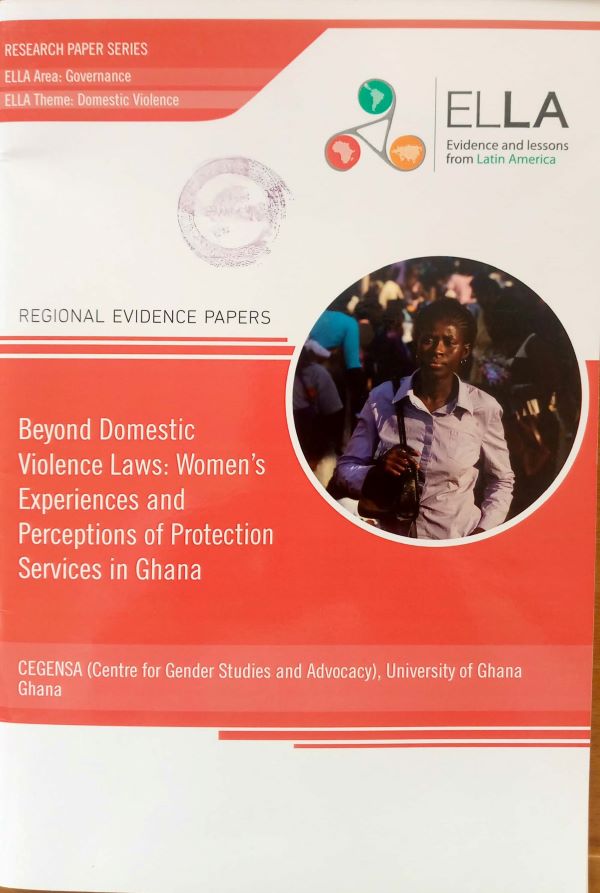Beyond domestic Violence Laws: Women’s Experiences and Perception of Protection Services in Ghana
Abstract
Since the early 1990s, there has been increasing recognition across the world that states should put in place effective mechanisms to address the violation of women’s rights. A number of countries have passed legislation designed to prevent domestic violence, punish perpetrators and protect survivors. There is a limited body of work that explores survivors’ experiences of domestic violence and their perceptions of the services provided under the new legislation. Based on a small number of cases, the studies suggest that the effect of legislation has been generally positive in Rwanda, Zambia, and South Africa. This study is designed to contribute to that literature by providing a context-specific analysis of the protective services available to survivors of domestic violence in Ghana. The article focuses on the existing shelter services in Ghana and assesses women’s experiences and perceptions of these services to draw out a number of policy implications.
Ghana is one of seven West African countries and twenty sub-Saharan countries to have passed a domestic violence bill. In an analysis of ten of these countries, Ortic-Barreda and Vives-Cases (2013) point out that the legislation in none of these countries provides a sufficiently comprehensive approach. Botswana, Mauritius, Rwanda, Seychelles, and South Africa only include police sector interventions; Ghana, Mozambique and Namibia do a little better, with police and justice sector and education sector interventions. Ghana is a special case in that it recognizes a diversity of domestic relationships, including kinship. It considers both men and women as survivors and perpetuators ensuring the full implementation of the Domestic Violence Act in Ghana are yet to be put in place. Ghana has only one shelter, so the research focused on that shelter. We used a qualitative approach and interviewed six survivors, three staff members and one former staff member of the shelter. We found that the survivors first turned to family and/or friends who then pointed them in the direction of the police. Experiences with the police service were generally negative. Survivors’ encounters with the police left them feeling revictimized. On the other hand, the survivors generally perceived their experiences at the shelter as positive. This particular finding resonates with similar studies in Rwanda (Bernath and Gahongayire 2013) and South Africa (Wright, Kiguwa and Potter 2007). The shelter provided them with a refuge from the abuse they had suffered and offered them an opportunity to prepare for living economically independent lives once outside the shelter. For many survivors, however, the process they underwent which led to their placement in the shelter resulted in estrangement from their families. It would appear then that the shelter model does not take the communitarian nature of African societies sufficiently into consideration, and there is a need for existing protection models to be reassessed. Based on these findings, we make the following recommendations to improve the provision of protection services in Ghana.
First, a network of shelters funded by both public and private sources should be set up across major cities in the country to address the needs of survivors of domestic abuse. Sensitisation programs should also be set up to address the negative attitude that are common towards survivors of domestic violence, especially sexual abuse survivors. Frontline staff require training to eliminate this secondary victimization of survivors. Information should also be disseminated about the existing shelter in the country so that survivors can take advantage of the services it provides. Shelter inhabitants require effective exit plans to enable them to successfully transition back into the real world. Finally, activism around domestic violence should continue in earnest to ensure that the correct legislative instruments are put in place in Ghana and other African countries where domestic violence bills have been passed into law.

